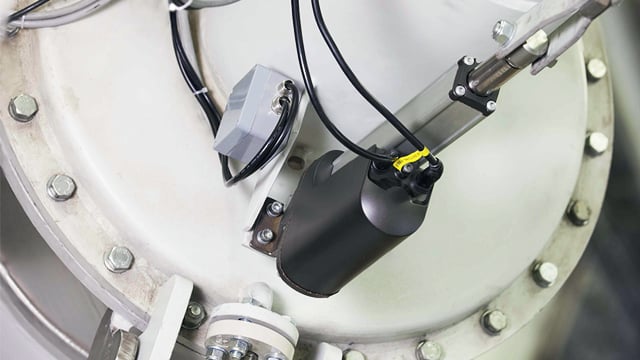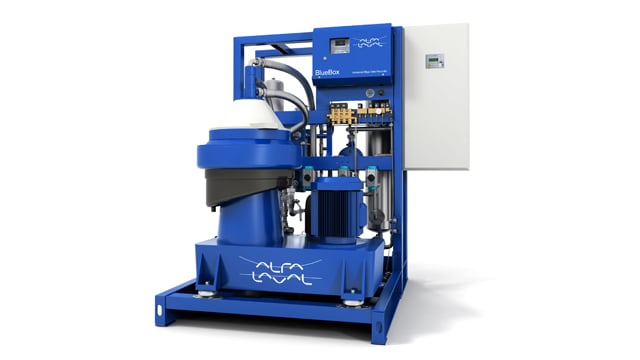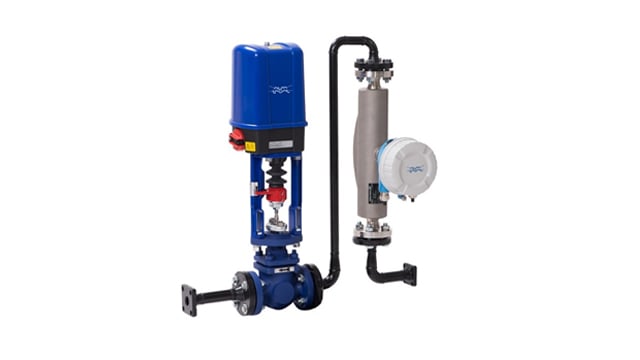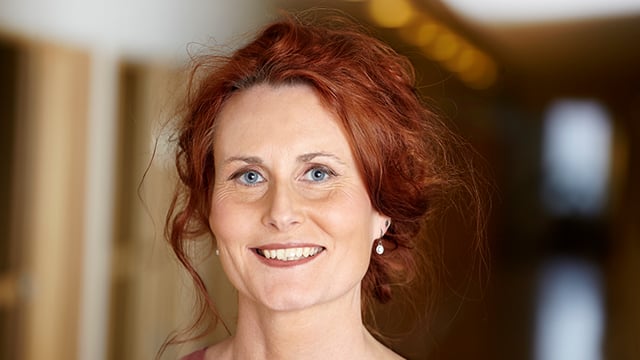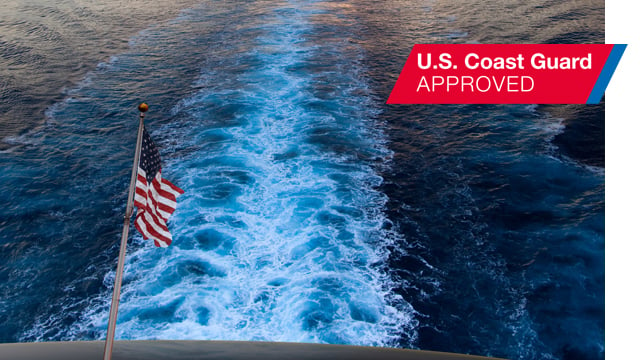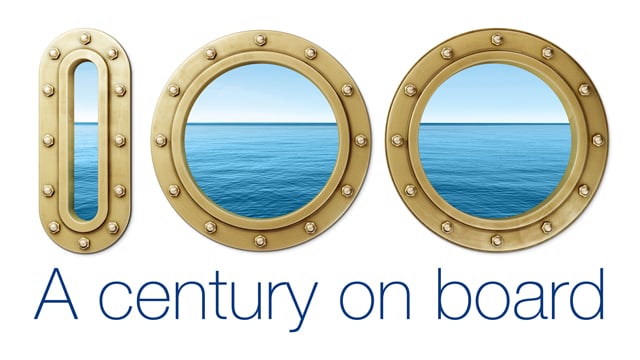With Alfa Laval experts on board, the first Yamal LNG tanker has completed its trials
Besides supporting customers in operation, Alfa Laval Field Service Engineers see deliveries through to successful commissioning. Few deliveries have been more complex than those of the Yamal LNG project, in which the first new Arctic ice-class vessel has completed its trials with two such experts on board.
The Yamal LNG project is creating a ‘floating pipeline’ between the gas-rich Yamal peninsula on the northwest Siberian coast and LNG customers in China and Japan. Because the 15 newbuilds that make up the project will face hostile Arctic conditions, they must be LNG tankers and ice breakers in one. Each will carry a range of Alfa Laval equipment, including two 35-tonne Alfa Laval Aalborg OL boilers with dual-fuel burners, a secondary thermal fluid heating system and an Alfa Laval Gas Combustion Unit (GCU) for dealing with boil-off gas.
The first of these vessels, Daewoo 2418 – Christophe de Margerie, has been delivered by Daewoo Shipbuilding & Marine Engineering and has now completed its gas and ice trials. On board for all three of the trials were Alfa Laval Field Service Engineers Frank Larsen and Jong Rak Ahn, who together represent 30 years of field service experience.
“This whole thing is a big cooperation,” says Larsen. “Getting everything right demands that we work closely with the yard, the Russian class society and the end customer.”
A long-term service undertaking
In most projects, Field Service Engineers like Larsen and Ahn first get involved during the commissioning process. But in the case of the Yamal LNG project, the two have followed the vessels from the very start. “Our work actually started two years ago with the software implementation for this unique equipment, ”Larsen explains. “So when it came to the trials of the Christophe de Margerie, we knew the systems well.”
As always, the aim of the trials was to ensure that the vessel performs according to specifications, from its engine and navigation to its cargo operations. But given the completely new design of the Yamal LNG tankers, it was also to ensure harmony between the marine and offshore equipment types on board, creating a more standardized package for future Yamal LNG deliveries.
For the two Field Service Engineers, this was a unique test of their skills. “I like the challenge in having a new mission for our equipment,” says Ahn.
Tough challenges in harsh conditions
The trials themselves were complex and demanding, extending over the better part of a year. First there was an early general trial, followed by a gas trial in Korea and more recently an ice trial in Siberia’s ultra-cold waters.
Adjusting and tuning the boiler systems was a key focus of the trials, given the importance of keeping the vessels running at temperatures as low as -50°C. “Our dual-boiler systems maintain the temperature of the other systems as well as the accommodation, all of which would freeze immediately without them,” says Ahn. “To reduce cost and environmental impact, the systems are designed to work primarily with boil-off gas.”
Likewise, there was considerable focus on the GCU, which is specially engineered to use outside air rather than the heated air of the engine room. Following a 10-day test of all valves, signals and connections in Korea, the GCU was tested at full load in icy conditions. “There’s a huge temperature difference between the +30°C in Korea and the -30°C in Russia’s Kara Sea,” says Larsen. “But we were pleased to see that the GCU performs just fine in both extremes.”
“Naturally there were calibrations and adjustments needed for the different equipment on board,” Larsen adds. “But we managed our many tasks and got it all running as it should be, not only in Korea, but also on the ice.”
Working in isolation – and cooperation
For both of the Field Service Engineers, the trials were a substantial commitment. Larsen left Denmark for the ice trial on 19 January and did not return until late March. “The ship reached Murmansk in mid-February and stayed for three days, then continued north to the ice,” says Larsen. “After Murmansk, we had no phone or Internet, so the only way to handle important communication was via the old ship mail system.”
Both Larsen and Ahn say that being cut off is a part of being a Field Service Engineer. Whether due to weak communications or simply time differences, they cannot always count on assistance from home. “During the ice trial, for example, we had to finish the commissioning of the thermal oil system without support from our product experts in the Netherlands,” Ahn says.
“You have to figure out how to cooperate to get the job done,” Larsen says, noting that there was tight cooperation between suppliers on the Christophe de Margerie. “On board it’s not that complicated, because you all have the same goal of solving any problems that exist. You’re all literally in the same boat.”
Satisfaction in doing the extraordinary
Despite the long and intense period on board, the trials of the Christophe de Margerie did have some advantages for the Field Service Engineers. Above all the trials were planned well in advance, which is far from the case in much of the engineers’ work. Often they find themselves called out on a last-minute basis, with only a few short hours to resolve the issue before the vessel sails. “You might get 14 days of warning, or you might have to leave the same day,” Larsen says. “You have to be like a fish, just swimming in whatever water you’re thrown into.”
The upside, both men say, is the opportunity to travel the world and work closely with so many different types of people. And both emphasize that the benefits outweigh any hardships. “I’ve been travelling more than 300 days a year while working for Alfa Laval,” says Ahn. “But the rewards are worth it.”
Larsen agrees. “You’re there to solve something no one else can, and that’s a kick I think most of us are after,” he says. “The reward is meeting the challenge and getting everything to work so that the customer is happy with the equipment on board.”

